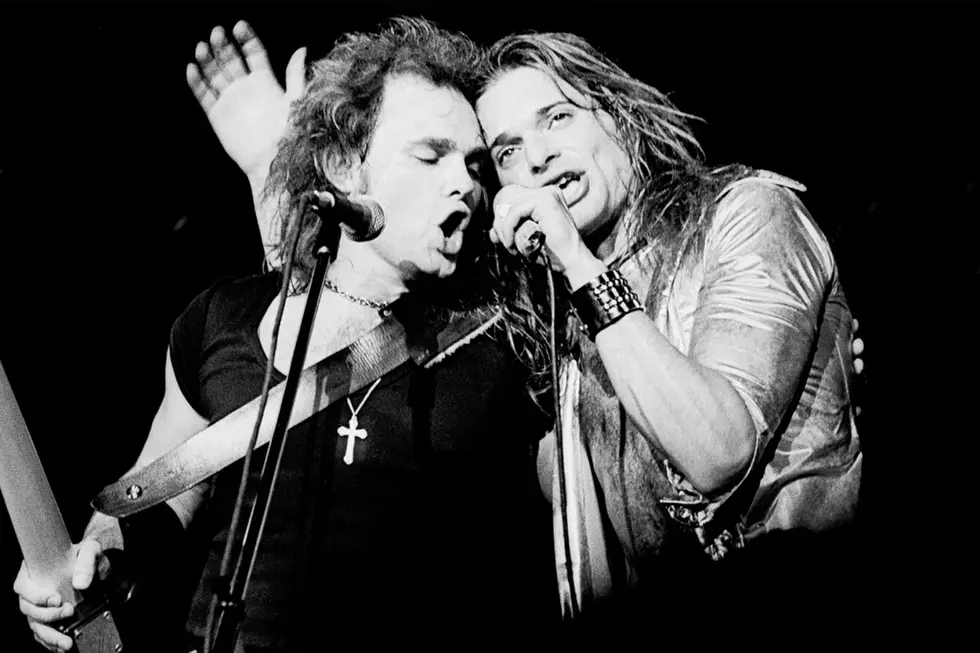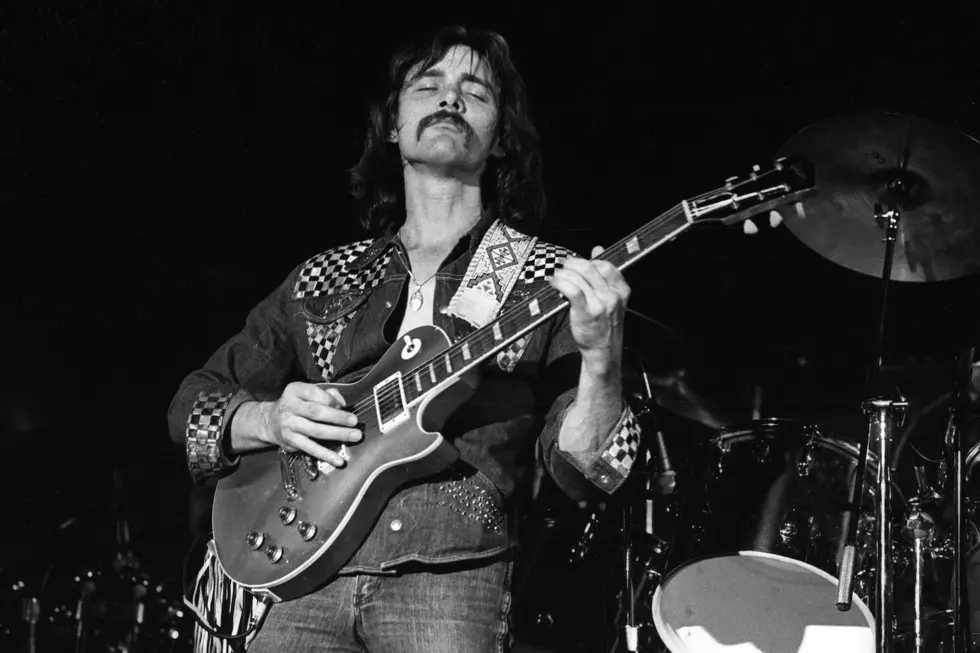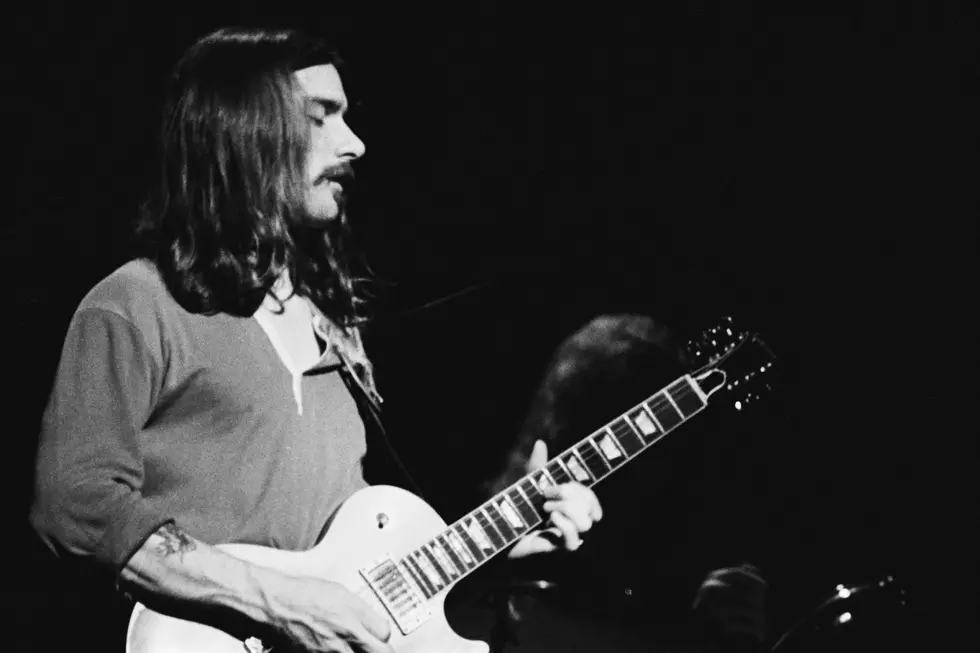40 Years Ago: Robert Palmer Finds His Groove With ‘Sneakin’ Sally Through the Alley’
Long before he became the sharp-dressed star of a series of sleek MTV-era videos, Robert Palmer was an R&B savant. Paired on his solo debut with a clutch of bonafide soul stars, he completely held his own.
In fact, 'Sneakin' Sally Through the Alley' -- released in September 1974 on Island -- features a who's who of the funky and the famous. Included were three members of Little Feat; three members of the Meters; everyone from the group Stuff, which was led by Cornell Dupree and Bernard Purdie; and strings svengali Gene Page, a Barry White collaborator. They surrounded a singer barely out of his teens who was best known, at least back in his native UK, for work with a far less interesting blues-rock outfit called Vinegar Joe.
"Here was this white English kid coming to New Orleans and New York to work with bands I had only heard on vinyl," the late Palmer told the Daily News back in 1996. "I first knew Stuff when they were called the Encyclopedia Of Soul, the seminal New York rhythm and blues band. They had been on loads of records and still had that raw edge. So, I jumped in the deep end and asked if they would be up for some sessions. They didn't know me from Adam -- and, at first, they wouldn't even say hello. But eight bars into the first tune, Purdie turned around and said, 'Sir, excuse me, what did you say your name was?' From then on, it was great."
He arrived with some rough sketches, but most of 'Sneakin' Sally Through the Alley' was developed on the spot, as Palmer -- to his credit -- took advantage of the collective knowledge in the room. These loose sessions even found Palmer improvising vocally, in direct contrast to his buttoned-down '80s image.
Still, as off-handed as it all sounds, this was just the way the young Palmer had planned it. "My ideas were carried through from start to finish, and the spontaneity, came from employing the right people to play," Palmer told the Lowell Sun in 1976. "I heard them playing the songs that I wrote not physically, but in my head. I thought, 'He'd be great doing this, and he'd be great doing that.' I didn't have to ask them to play a certain way, they just did it naturally."
Sometimes, as with 'Through It All, There's You' -- the closing track on 'Sneakin' Sally Through the Alley' -- that meant stretching a song well past 12 minutes. "There was no reason to stop," Palmer told the Daily News. "We were just cueing the sections by numbers, which is how they do it in New Orleans. You know, 'Go to the three section!' You'd just keep going until somebody woke up, basically."
Palmer recorded with Stuff in New York, while the Louisiana sessions for 'Sneakin' Sally Through the Alley' were held at Allen Toussaint's Sea-Saint studios -- a setting that no doubt sparked the idea to record the title track, an old R&B hit written by Toussaint for Lee Dorsey. The suggestion actually came from the wife of Little Feat's Lowell George, who composed two of this album's eight tracks -- including the opening 'Sailing Shoes' and 'Black Mail,' a collaboration with Palmer.
"Working with him was great," Palmer said of the late George in 1996, "because you'd catch onto a grain of an idea and the next time you looked at your watch, it was a day later and you hadn't done anything but gone with that idea. In the meantime, ideas would just fly back and forth. Suddenly, you'd take a left turn and bang, there'd be a song. It was just music, music, music with him. I don't really find anything wrong with the word 'obsessive.' I especially loved the way he played guitar. He had the ability to describe the whole song in a very minimal way. And he had this very surreal sense of humor. He was the real thing."
George also played guitar on five tracks, highlighted by a pair of Toussaint originals in the title track and 'Whisper to a Scream.' George had recorded Toussaint's 'On Your Way Down' with Little Feat prior to these sessions, and later -- after 'Sneakin' Sally' earned some FM radio play -- also did Toussaint's 'What Do You Want the Girl to Do' for a solo effort in 1979.
“I feel highly flattered,” Toussaint told the Union-Tribune in 2007. “For one thing, I'm flattered they were interested enough to not only give it a listen, but to go and record it, which meant they had to live with it and learn it. It's a wonderful feeling and I can't express enough gratitude for the people who have covered songs of mine."
Along the way, Palmer became something of a cult favorite, principally among college-radio DJs, critics and people back in Louisiana. "After my third record, I went back down to New Orleans to do a gig and the Meters were opening for me," Palmer told the Daily News. "I felt weird about that, but they were cool."
In a broader sense, however, 'Sneakin' Sally Through the Alley' was both novel idea and noble failure -- peaking at just No. 107 on Billboard and failing to chart anywhere else. Palmer stuck with a similar formula through a pair of follow ups in 'Pressure Drop' and 'Some People Can Do What They Like,' before turning to a more conventional approach.
Far greater chart success awaited, of course. "I don't work that way anymore," Palmer admitted in 1996. "I know better now. But I was trying for that funk-jam feel. The point was to get this groove I always had a feel for. And I got it, even more than I'd even hoped for."
Palmer, who died suddenly of a heart attack at just 54 in 2003, would score Top 20 hits in the late '70s with 'Every Kinda People' and 'Bad Case of Loving You (Doctor, Doctor).' He really hit his stride into the next decade, however, after participating in the mid-'80s supergroup Power Station with members of Duran Duran and Chic. They sent 'Some Like It Hot' and a remake of T. Rex's 'Get It On (Bang a Gong)' into the Top 10 in 1985, which opened the door for Palmer's solo charttopper 'Addicted to Love' in '86. That same year, 'I Didn't Mean To Turn You On' went to No. 3; 'Simply Irresistible' returned Palmer to No. 1 in 1988.
Through the approach clearly changed, Palmer said one thing did not. "The whole point of it is using music to express yourself, to keep following the muse and taking risks," Palmer recalled, late in life. "But whatever style I'm working with, it comes down to the fact that I have to sing it and believe in it. I can appreciate production values and musicianship and this, that and the other thing -- but unless there's some soul to it, there's not much point."
More From Ultimate Classic Rock









